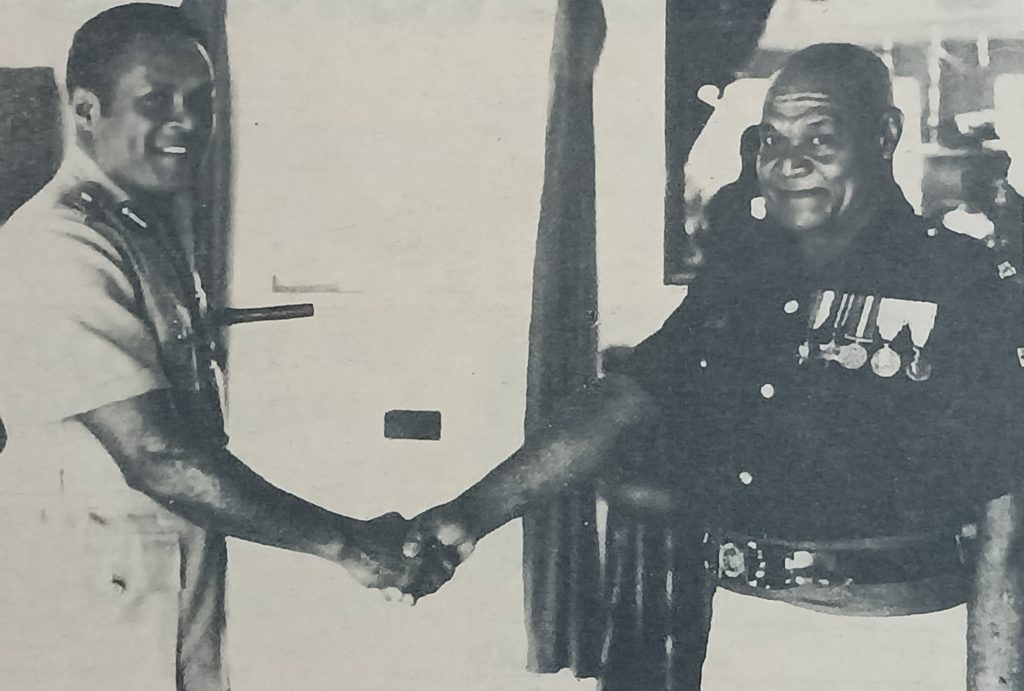Corporal Fakatene Pili, from Tuvalu, served as the cheerful and welcoming barman at the Royal Fiji Police Gazetted Officers’ Mess in Suva for two decades starting in 1979.
However, according to an article published by The Fiji Times on November 9 that year, Mr Pili, who was 58 at the time, had known tough times in the past, including an incident in World War II in which he claimed to have drowned five Japanese in the sea off Tarawa in revenge for his treatment as a prisoner of war.
He retired from the Royal Fiji Police but volunteered to continue as a member of the Special Constabulary, continuing as a special to serve in the Gazetted Officers’ Mess.
He told of his war experiences in recalling for The Fiji Times memories of his life.
Mr Pili, then a student at the King George V Secondary School in Tarawa, was taken with several other senior students and 24 government workers to work as prisoners for the Japanese.
“It was a dragging nine months of hard labour, and we lived on a bowl of rice a day,” he said.
“Those of us who could not do the work required were tied to a coconut tree and whipped by the soldiers.
“We were treated like slaves, and there was no way of escaping because we were living inside the army camp encircled by a barbed-wire fence.”
According to The Fiji Times report, one afternoon, Mr Pili was assigned with five Japanese soldiers to do oil research on a ship anchored offshore. They got into a small boat and rowed out to sea.
He said the sea was rough and capsized the boat. They were thrown overboard, and he thought to himself that this was the moment to take his revenge.
He said the soldiers had haversacks on their backs, which weighed them down, so he tackled them one by one by pulling them down underwater.
“They could not do anything because I was stronger.”
He clung to the boat and floated for a while before a rescue party arrived and took him ashore with the dead men, but he escaped.
He later joined the American Naval Base at Tarawa after the Americans occupied the island in place of the Japanese.
He worked in the sick bay with the late United States president John F Kennedy for a year.
“He was a sergeant at that time, and we worked very closely together,” Mr Pili said.
When the war became very tense in the Solomon Islands, he volunteered to go with the naval team.
Mr Pili served as a camp Staff Sergeant and was awarded three World War II medals for his courage.



